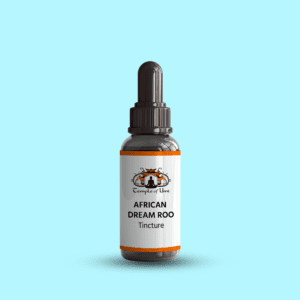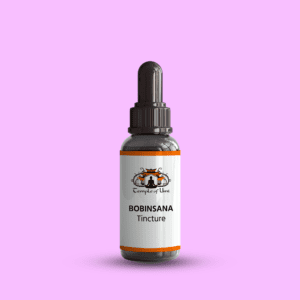Understanding Integration Therapy

By Temple of Umi

Table of Contents
In this comprehensive guide, uncover the transformative power of integration therapy and learn how it can be a beacon of hope, guiding you towards healing, personal growth, and emotional balance.
What is Integration Therapy?
Integration therapy is a therapeutic approach designed to help individuals process and make sense of intense emotional experiences, often arising from trauma (such as a car accident or childhood abuse), psychedelic experiences (like a challenging trip on a hallucinogen), or profound personal insights (such as a sudden realization about one’s life purpose). This form of therapy emphasizes the importance of integrating these experiences into one’s daily life, fostering emotional well-being and personal growth. Learn more.
The Importance of Integration Therapy
Integration therapy plays a crucial role in many individuals’ healing journeys. It helps bridge the gap between intense emotional experiences and everyday life, allowing for a more holistic understanding of oneself. Here are some key reasons why integration therapy is essential:
Processing Emotions: Integration therapy provides a safe space to process complex emotions that may arise after significant life events or experiences.
Promoting Self-Discovery: Through integration, individuals gain insights into their behaviors, patterns, and beliefs, leading to personal growth and self-awareness.
Healing Trauma: For those with a history of trauma, integration therapy helps in understanding and healing from past experiences, reducing their emotional impact.
Enhancing Mental Health: By addressing unresolved emotions and experiences, integration therapy can lead to improved mental health, reducing symptoms of anxiety and depression.

How Integration Therapy Works
Integration therapy typically involves a structured approach with various therapeutic techniques tailored to the individual’s needs. Here are some standard methods used in integration therapy:
Talk Therapy: One-on-one sessions with a therapist help individuals articulate their feelings and experiences, fostering a deeper understanding of their emotional landscape.
Mindfulness Practices: Techniques such as meditation and mindfulness help individuals stay grounded and present, allowing for a more profound integration of experiences.
Journaling: Writing about experiences and emotions can be a powerful tool for reflection and processing feelings, promoting clarity and understanding.
Art and Creative Therapies: Engaging in creative activities can facilitate the expression and exploration of complex emotions, providing an alternative way to process experiences.
Benefits of Integration Therapy
Integration therapy offers numerous benefits, including:
Improved Emotional Resilience: Individuals learn to manage their emotions effectively, leading to greater resilience in facing life’s challenges.
Greater Self-Awareness: By reflecting on their experiences, individuals develop a better understanding of themselves, their values, and their motivations.
Enhanced Relationships: As individuals process their emotions and experiences, they often find it easier to communicate and connect with others, improving their relationships.
Sustainable Personal Growth: Integration therapy promotes lasting change, enabling individuals to incorporate insights from their experiences into their daily lives.
Who Can Benefit from Integration Therapy?
Integration therapy can be beneficial for a wide range of individuals, including:
- Those Recovering from Trauma: Individuals who have experienced trauma can find solace and healing through integration therapy.
- Psychedelic Experience Participants: Those who have undergone psychedelic experiences may struggle with integration, making this therapy particularly relevant.
- Individuals Seeking Personal Growth: Anyone looking to deepen their self-understanding and enhance their emotional well-being can benefit from integration therapy.
How to Find an Integration Therapist
If you’re interested in pursuing integration therapy, here are some steps to help you find the right therapist:
Research: Look for therapists specializing in integration therapy, trauma recovery, or psychedelic integration. Check their credentials and experience.
Read Reviews: Look for testimonials and reviews from previous clients to gauge the therapist’s effectiveness and approach.
Schedule a Consultation: Many therapists offer an initial consultation. Use this opportunity to discuss your needs and see if the therapist is a good fit for you.
Consider Specializations: Some therapists may have additional training in specific areas, such as trauma or mindfulness, which can be beneficial depending on your needs.
Integration Therapy Techniques
Integration therapy may incorporate various techniques to facilitate emotional processing and personal growth. Here are some effective methods used in integration therapy:
Psychoeducation: Educating individuals about the psychological effects of their experiences can help them understand their emotions better.
Gestalt Therapy: This technique emphasizes personal responsibility and focuses on the present moment, assisting individuals to connect with their feelings and experiences.
Cognitive Behavioral Therapy (CBT): CBT techniques may be integrated to help individuals challenge and reframe negative thought patterns.
Somatic Experiencing: This body-focused approach helps individuals release pent-up emotions stored in the body, promoting physical and emotional healing.
Challenges in Integration Therapy
While integration therapy can be immensely beneficial, there are challenges to be aware of:
Resistance to Change: Individuals may resist confronting painful emotions or experiences, making the integration process difficult.
Expectations: It’s essential to approach integration therapy without unrealistic expectations; healing takes time and effort.
Finding the Right Fit: Not every therapist resonates with every individual, and finding a therapist who aligns with your needs and values may take time.
Tips for Successful Integration
To maximize the benefits of integration therapy, consider the following tips:
Be Open and Honest: Honesty with your therapist fosters a safe and trusting environment for healing.
Practice Self-Compassion: Be gentle with yourself during the integration process. Acknowledge that healing is a journey with ups and downs.
Engage in Self-Care: Incorporate self-care practices into your routine, such as exercise, healthy eating, and relaxation techniques.
Stay Committed: Commit to the process, even when it feels challenging. Consistency is critical to achieving lasting change.

Determination
Integration therapy offers a powerful pathway for healing and personal growth. By helping individuals process their experiences and emotions, this therapeutic approach fosters self-awareness, emotional resilience, and sustainable change. If you’re considering integration therapy, take the time to find a qualified therapist who aligns with your needs, and remember that healing is a journey worth embarking on.
By embracing integration therapy, you can unlock the potential for profound transformation, leading to a more balanced and fulfilling life. Whether you’re recovering from trauma, processing a psychedelic experience, or simply seeking personal growth, integration therapy can be the key to unlocking your true potential.
Useful links
- What is Sacred Plant Medicine?
- Embark on a Journey of Transformation with Spiritual Healing
- Unveiling Healing Energy at the Temple of Umi
- 10 Energy Healing Techniques to Transform Your Life
- Where to get Sacred Plant Medicine Retreat in the USA
- Top Plant medicine retreats in the USA. Learn more.
- Cost of Plant Medicine Retreat: Balancing Cost and Experience. Learn more.
- What is trauma bonding?
- A Journey into the Healing Properties of Psychedelic Mushrooms. Learn more.
- Plant Medicine Retreat Georgia – Experience Spiritual Awakening
- Spiritual Retreats Georgia
- Shaman in America Exploration
- Shamanism – Shamanic healing
- Shaman Healing Guide
- Plant Medicine ceremonies near you in the USA
- Plant Medicine Experience
- DMT Journey, Benefits, and Side Effects
- Iowaska – What is it?
- Plant medicine retreats in Georgia
- Why massage is beneficial, according to a cardiologist.
- Are mushrooms truffles – What Is a Truffle?
- 11 Best Plant Medicine Retreats in the USA for Spiritual Healing
- Sacred Plant Medicine Retreats in Georgia
- 5 Ayahuasca Retreats in California Worth Exploring
- 7 Best Aya Retreats in America. Click here.
- Mcdonough Ayahuasca retreat
- Conley Ayahuasca retreat
- Whitesburg Ayahuasca retreat
- Brooks Ayahuasca retreat
- Gay Ayahuasca retreat
- Williamson Ayahuasca retreat
- Orchard Hill Ayahuasca retreat
- Glenn Ayahuasca retreat
- Luthersville Ayahuasca retreat
- Shady Dale Ayahuasca retreat
- Bowdon Junction Ayahuasca retreat
- Sargent Ayahuasca retreat
- Greenville Ayahuasca retreat
- Lovejoy Ayahuasca retreat
- Winston Ayahuasca retreat
- Rutledge Ayahuasca retreat
- Moreland Ayahuasca retreat
- Molena Ayahuasca retreat
- Lebanon Ayahuasca retreat
- Good Hope Ayahuasca retreat
- Haralson Ayahuasca retreat
- An Inclusive List of Psychedelic Quotes
- Mount Ayahuasca retreat
- Grantville Ayahuasca retreat
- Pine Lake Retreat near
- Rydal Ayahuasca retreat
- Porterdale Ayahuasca retreat
- Waco Ayahuasca retreat
- Temple Ayahuasca retreat
- Bethlehem Ayahuasca retreat
- Jenkinsburg Ayahuasca retreat
- Adairsville Ayahuasca retreat
- Red Oak Ayahuasca retreat
- Woodbury Ayahuasca retreat
- Cassville Ayahuasca retreat
- Redan Ayahuasca retreat
- North Decatur Ayahuasca retreat
- Grantville Ayahuasca retreat
- Hillsboro Ayahuasca retreat
- Jackson Ayahuasca retreat
- Braselton Ayahuasca retreat
- Zebulon Ayahuasca retreat
- Flovilla Ayahuasca retreat
- Auburn Ayahuasca retreat
- Warm Springs Ayahuasca retreat
- Scottdale Ayahuasca retreat
- Lithia Springs Ayahuasca retreat
- Villa Rica Ayahuasca retreat
- Grayson Ayahuasca retreat
- Sunny Side Ayahuasca retreat
- Senoia Ayahuasca retreat
- Locust Grove Ayahuasca retreat
- Chamblee Ayahuasca retreat
- Fairburn Ayahuasca retreat
- Snellville Ayahuasca retreat
- Monticello Ayahuasca retreat
- Union City Ayahuasca retreat
- Tallapoosa Ayahuasca retreat
- Bremen Ayahuasca retreat
- Hampton Ayahuasca retreat
- Monroe Ayahuasca retreat
- Marble Hill Ayahuasca retreat
- Madison Ayahuasca retreat
- Dawsonville Ayahuasca retreat
- Felton Ayahuasca retreat
- Concord Ayahuasca retreat
- Mansfield Ayahuasca retreat
- Taylorsville Ayahuasca retreat
- Roopville Ayahuasca retreat
- Turin Ayahuasca retreat
- Franklin Ayahuasca retreat
- Clarkdale Ayahuasca retreat
- Talking Rock Ayahuasca retreat
- Jersey Ayahuasca retreat
- Kingston Ayahuasca retreat
- Bostwick Ayahuasca retreat
- North Metro Ayahuasca retreat
- Meansville Ayahuasca retreat
- Social Circle Ayahuasca retreat
- White Ayahuasca retreat
- Rhode Island Ayahuasca retreat
- Maryland Ayahuasca retreat
- Delaware Ayahuasca retreat
- New Jersey Ayahuasca retreat
- Connecticut Ayahuasca retreat
- Massachusetts Ayahuasca retreat
- Hampshire Ayahuasca retreat
- Pennsylvania Ayahuasca retreat
- New York Ayahuasca retreat
- Florida Ayahuasca retreat
- South Carolina Ayahuasca Retreat
- North Carolina Ayahuasca Retreat
- West West Virginia Ayahuasca retreat
- Virginia Ayahuasca retreat
- Ohio Ayahuasca retreat
- Alabama Ayahuasca retreat
- Mississippi Ayahuasca retreat
- Tennessee Ayahuasca retreat
- Kentucky Ayahuasca retreat
- IndianaAyahuasca retreat
- ILLINOIS Ayahuasca retreat
- Missouri Ayahuasca retreat
- Arkansas Ayahuasca retreat
- Louisiana Ayahuasca retreat
- Texas Ayahuasca retreat
- Oklahoma Ayahuasca retreat
- KansasAyahuasca retreat
- Ayahuasca retreats near me in Experiment.
- A wellness retreat in Georgia
- What is Ayahuasca?
- Embark on a Journey of Transformation with Spiritual Healing
- Unveiling Healing Energy at the Temple of Umi
- 10 Energy Healing Techniques to Transform Your Life
- Where to get Ayahuasca in the USA
- Top Ayahuasca retreats in the USA. Learn more.
- Cost of Ayahuasca Retreat: Balancing Cost and Experience. Learn more.
- What is trauma bonding?
- A Journey into the Healing Properties of Psychedelic Mushrooms. Learn more.
- Ayahuasca Retreat Georgia – Experience Spiritual Awakening
- Spiritual Retreats Georgia
- Shaman in America Exploration
- Shamanism – Shamanic healing
- Shaman Healing Guide
- Ayahuasca ceremonies Ayahuasca ceremonies near you in the USA
- Ayahuasca Experience
- DMT Journey, Benefits, and Side Effects
- Iowaska – What is it?
- Plant medicine retreats in Georgia
- Why massage is beneficial, according to a cardiologist.
- Are mushrooms truffles – What Is a Truffle?
- 11 Best Ayahuasca Retreats in the USA for Spiritual Healing
- What is Rapé?
- What is a Tincture?
- Where to find Ayahuasca near me
- Healing retreats USA
- Best Retreats USA








